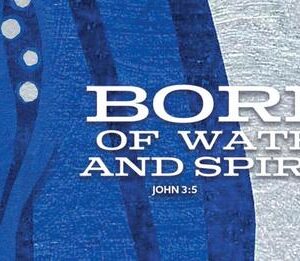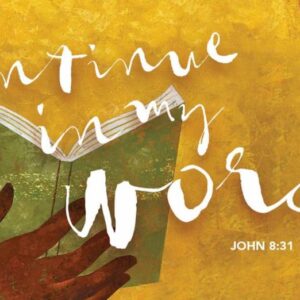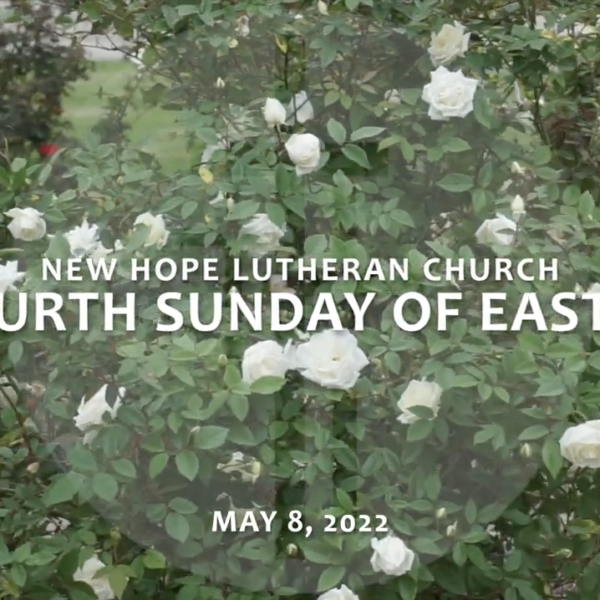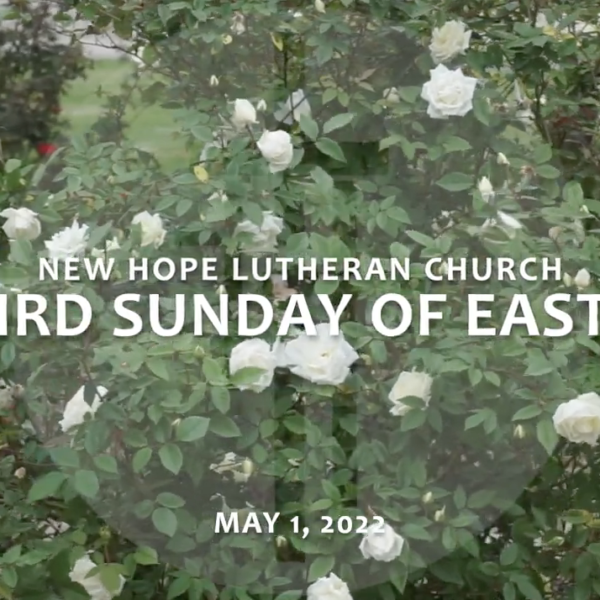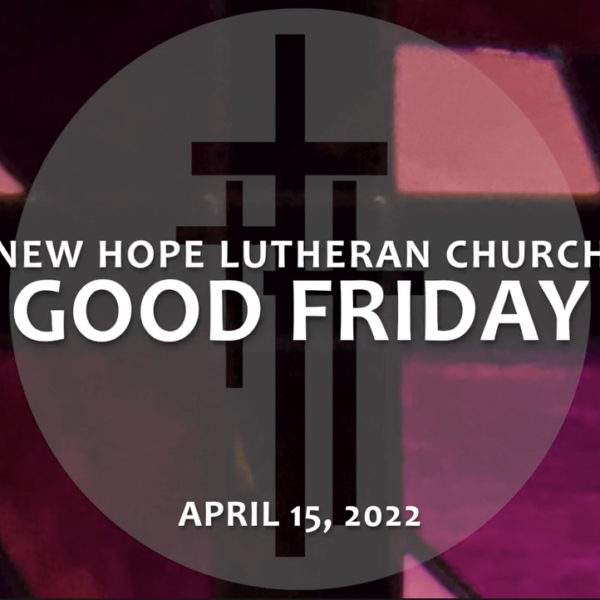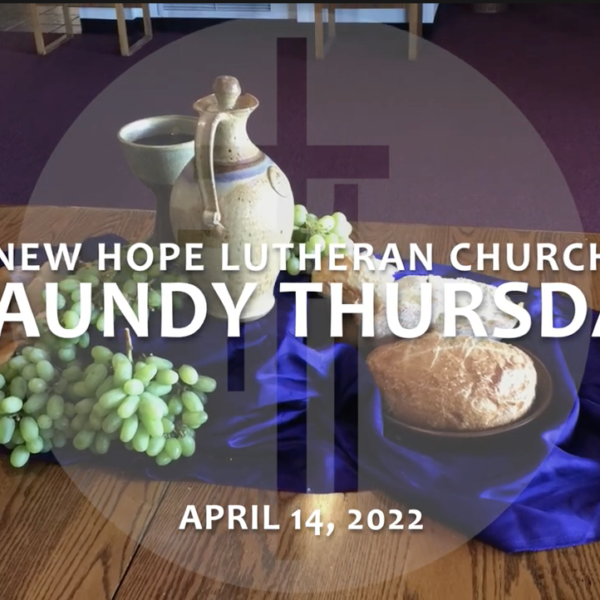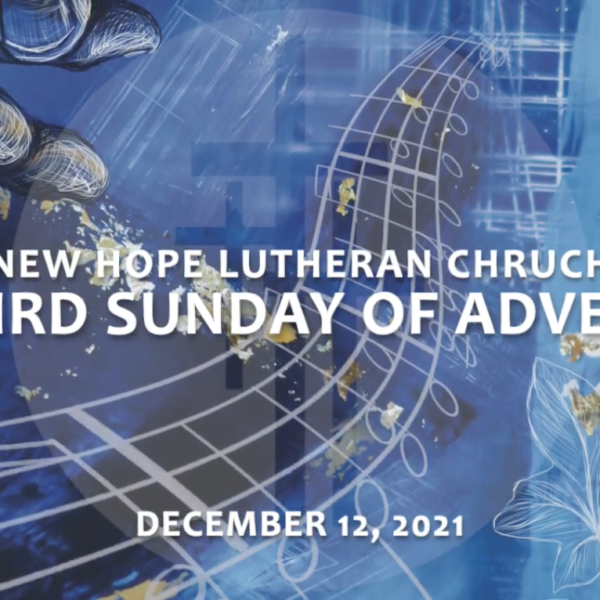Third Sunday in Lent 2023
John 4:3-42
3 Jesus left Judea and started back toward the Galilee. 4 But he had to go through Samaria. 5 So he came to a Samaritan city called Sychar, near the plot of ground that Jacob had given to his son Joseph. 6 Jacob’s well was there, and Jesus, tired out by his journey, was sitting by the well. It was about noon.
7 A Samaritan woman came to draw water, and Jesus said to her, “Give me a drink.” 8 (Jesus’ disciples had gone to the city to buy food.) 9 The Samaritan woman said to Jesus, “How is it that you, a Jewish man, ask a drink of me, a woman of Samaria?” (Jewish people do not share things in common with Samaritans.) 10 Jesus replied to her, “If you knew the gift of God, and who it is that is saying to you, ‘Give me a drink,’ you would have asked him, and he would have given you living water.” 11 The woman said to him, “Sir, you have no bucket, and the well is deep. Where do you get that living water? 12 Are you greater than our ancestor Jacob, the one who gave us the well, and with his children and his flocks drank from it?” 13 Jesus said to her, “Everyone who drinks of this water will be thirsty again, 14 but those who drink of the water that I will give them will never be thirsty. The water that I will give will become in them a spring of water gushing up to eternal life.”
15 The woman said to Jesus, “Sir, give me this water, so that I may never be thirsty or have to keep coming here to draw water.”
16 Jesus said to her, “Go, call your husband, and come back.” 17 The woman answered Jesus, “I have no husband.” Jesus said to her, “You are right in saying, ‘I have no husband’; 18 for you have had five husbands, and the one you have now is not your husband. What you have said is true!”
19 The woman said to Jesus, “Sir, I see that you are a prophet. 20 Our ancestors worshiped on this mountain, but you say that the place where people must worship is in Jerusalem.” 21 Jesus said to her, “Woman of Samaria, believe me, the hour is coming when you will worship God neither on this mountain nor in Jerusalem. 22 You worship what you do not know; we worship what we know, for salvation is from the Jewish people. 23 But the hour is coming, and is now here, when the true worshipers will worship God in spirit and truth, for it is such worshipers that God seeks. 24 God is spirit, and those who worship God must worship in spirit and truth.” 25 The woman said to Jesus, “I know that Messiah is coming”(who is called the Christ). “When the Messiah comes, the Messiah will proclaim all things to us.” 26 Jesus said to her, “I am…the Messiah…the one who is speaking to you.”
27 Just then Jesus’ disciples came. They were astonished that he was speaking with a woman, but no one said, “What do you want?” or, “Why are you speaking with her?” 28 Then the woman left her water jar and went back to the city. She said to the people, 29 “Come and see someone who told me everything I have ever done! Can this be the Messiah?” 30 They all left the city and were on their way to him.
31 Meanwhile the disciples were urging Jesus, “Rabbi, eat something.” 32 But Jesus said to them, “I have food to eat that you do not know about.” 33 So the disciples said to one another, “Surely no one has brought him something to eat?” 34 Jesus said to them, “My food is to do the will and accomplish the work of the one who sent me. 35 Do you not say, ‘Four months more, then comes the harvest’? But I tell you, look around you, and see how the fields are ripe for harvesting. 36 The reaper is already receiving wages and is gathering fruit for eternal life, so that sower and reaper may rejoice together. 37 For here the saying holds true, ‘One sows and another reaps.’ 38 I sent you to reap that for which you did not labor. Others have labored, and you have entered into their labor.”
39 Many Samaritans from that city trusted in Jesus because of the woman’s testimony, “He told me everything I have ever done.” 40 So when the Samaritans came to Jesus, they asked him to stay with them; and Jesus stayed there two days. 41 And many more believed because of Jesus’ word.
42 They said to the woman, “It is no longer because of what you said that we believe, for we have heard for ourselves, and we know that this is truly the Savior of the world.”
————————
Please pray with me this morning, church:
Ever-living God,
In the midst of our everyday lives
It can be difficult to detect your presence.
And yet, our stomachs ache and our mouths thirst for you.
Send us living water, again, this morning.
Feed us with yourself
And lead us to wellsprings gushing up to everlasting life.
Amen.
————————
Do you have a feeling, or a memory, that instantly brings you comfort? Like a wave that washes and settles over you, and you just feel completely at peace, like all the outside noise and anxieties are lost and forgotten?
For me, almost every time I first get into bed at night. The very first time I pull back the sheets, climb under the blankets, and just sink in, and my body instantly relaxes and I just settle. That, and the feeling of the cool side of the pillow.
Do you have a feeling or a memory like that, church?
That feeling makes me wonder if that safety or security or comfort is what it’s like to experience or encounter God. Like, is that what Moses experienced in the burning bush? Or is that what the Samaritan woman felt like at the well?
Maybe. Maybe not. Perhaps Moses was more terrified than relaxed. Maybe the Samaritan woman was more annoyed or apprehensive than comforted.
For me, I’ve been acutely aware of God’s presence at a particular moment in my life maybe only a handful of times.
It may surprise you…or maybe not…to learn that pastors have no more or less tangible encounters with the holy than anyone else. I mean, we have degrees that are literally called Master of Divinity, and we regularly talk about such things for 10-12 minutes on a weekly basis. But aside from that, it’s totally the same. “Pastors are regular people?!?” you say?! **gasp!**
I know…it was a shock to me, too.
But truthfully, just a handful of times where I am pretty certain that I was inhabiting some sort of holy space. Really aware of the presence of something I couldn’t quite name or put my finger on.
One of my good friends and colleagues talks about her call to ministry and hearing what she describes as an affirmation from God that sounded like a really loud thought. My own experience related to my call to ministry was a feeling like a really heavy wool blanket pressing down on my shoulders, but like, in a comforting way. Other folks I know have much more descriptive experiences—real, tangible people…real, tangible encounters…people, places, times they can name and describe.
But aside from my own handful of times, most often I find myself, like the Israelites in our reading from Exodus, testing and quarreling and striving with God, pleading the question, “Well??!? Is God here or not?!?!”
I share with you, friends, that I have pleaded and wrestled with that question more than I’d like to admit over the past three years. The rate of change since the pandemic has been so fast. The changes we’ve seen in our communities have been so big and so great, and things look so different than they did before that it just seems like a really honest question…
Is God among us or not?
Maybe you look around this morning, notice who’s here, but especially who’s not…a Sanctuary less full than you remember…friends with more gray hair than you remember…maybe your own reflection in the mirror looking and feeling a little worse for wear, too. Why doesn’t this feel like it used to? Why does everything all of sudden feel so difficult? Why is it that I feel like I haven’t relaxed my shoulders from hanging out up around my ears for a couple of years or more?
Relax your shoulders, church. Take some deep breaths and try and remember to loosen some of your muscles. It’s going to be ok.
In our gospel reading this morning, Jesus is traveling from Judea to the south up to the area of the Galilee to the north, and the most direct path is through Samaria. However, most Jewish folks making the same journey would have crossed the Jordan River to the east and gone around Samaria because, as the author of John reminds us, “Jewish people and Samaritans do not share things in common with one another.” This is a bit of a nicer construction than what was actually happening, see, Jewish people and Samaritans really didn’t like each other. They had a common ancestor in Jacob—you know, the one who wrestled with God and struggled out a blessing and received a new name “Israel” but was left with a limp and a hip out of joint for all his wrestling and striving—Samaritans and Jewish people had Jacob/Israel in common, but from there, their experiences of God, their worship practices, and subsequently, their feelings about each other diverged pretty dramatically.
So Jesus is making an intentional choice by traveling directly through Samaria, and as a Jewish teacher and a man, Jesus has a lot of power in this encounter. But the Samaritan woman doesn’t back down in this exchange. After all, Jesus is the one who’s traveling through the place where she lived. Why should she back down? He’s the one who didn’t travel the long way around Samaria. Jesus holds a lot of power in this encounter, but the Samaritan woman doesn’t automatically subordinate herself to that power. She engages Jesus in conversation, and kind of to everyone’s surprise, Jesus engages her in conversation back. The conversation moves from an exchange about physical thirst to a theological discussion about living water to a comment on how many husbands she’s had and finally the revelation of the Messianic secret to the Samaritan woman—“I am…he…the Messiah…the one who is speaking to you.”
It’s interesting that the first affirmation of Jesus as the Messiah in the Gospel according to John comes not to an insider, not to someone powerful, not to Nicodemus the Jewish religious leader, not even to Jesus’ own disciples…but to a Samaritan woman. An outsider among outsiders. A religious, ethnic, gender, class, and social outsider. Literally the least likely person you would expect.
And yet, Jesus tells her. “I am…the Messiah…the one who is speaking to you.”
Is God among us or not?
Very clearly, yes, I think.
I think both Jesus and the Samaritan woman had their minds changed by this encounter. I think both Jesus and the Samaritan woman are asking that same question—“Is God in the midst of this interaction or not?” And I think they both get an affirmation that indeed God is moving and active in this exchange.
The question of God’s presence among us or not is a deeply honest one. At its heart, the question reveals a deep and nagging hunger to experience God…an almost unquenchable thirst for that living water, to be seen and to be known by God.
So where is God, church? Is God among us or not?
Look for living water. Look for lives being changed and hearts resonating with the truth that who they are is nothing less than beloved by God. It’s in these moments that the kingdom of God breaks forth with living water gushing up like a wellspring of eternal life.
God is found where hunger is satisfied and thirst is quenched. God is where we are seen and known, not for our mistakes and failures, not for the worst parts of ourselves, but seen and known exactly who and how we are—as beloved, as bearers of the divine image, as beautiful and wonderful creations of a gracious and loving creator. God is where people are being served and loved and where communities are being lifted up by the faithful work of disciples who take seriously God’s call to love, care, and serve their neighbor.
Where do you see signs of this living water, church?
I see people gathering for worship and deep and honest questioning over a meal at our Wednesday Night Soup Suppers during Lent. I see Women’s and Men’s Bible Studies engaging consequential and heartfelt matters of faith each week. I see Sunday School classes, adult education, volunteers extending a hand, people giving of their time to feed, clothe, and house others, mentors forming abiding relationships with students… In my estimation, the springs of water are everywhere, church.
Drink deeply from them.
Find a way to get involved and find your own hunger and thirst satisfied.
Discover God in your midst.
Be filled.
Be known.
Be loved.

